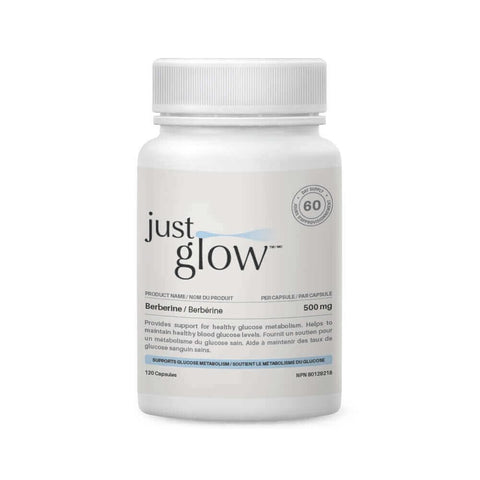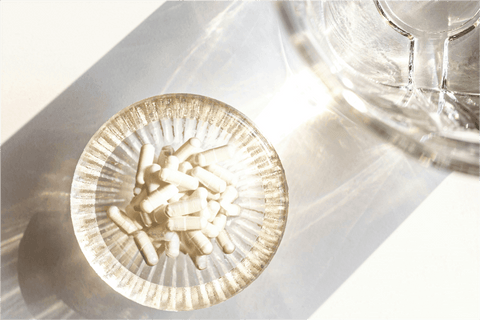What is the Recommended Dosage of Berberine?

Key Takeaways:
- Optimal Dosage for Maximum Benefits: To achieve the best results with berberine, the recommended dosage is 900-1,500 mg per day, split into 2-3 doses. Start with a lower dose to monitor your body’s response.
- Targeted Dosage for Specific Health Goals: For blood sugar control, take 500 mg three times daily. For weight loss and heart health, take 300-500 mg two to three times daily. Adjust based on your health needs.
- Precautions and Interactions: Berberine may interact with medications like blood thinners and diabetes drugs. Always consult a healthcare provider before starting, especially if taking other medications.
What is Berberine?
Berberine is a naturally occurring substance found in plants such as goldenseal, barberry, and Oregon grape. It's been used for centuries in traditional Chinese and Ayurvedic medicine due to its potent therapeutic properties.
How Does Berberine Work?
Berberine functions at a molecular level, primarily by activating an enzyme called AMP-activated protein kinase (AMPK). This enzyme plays a key role in regulating metabolism, which helps improve insulin sensitivity, reduce blood sugar levels, and promote overall metabolic health.
Benefits of Taking Berberine

The main benefits of berberine include:
-
Lower and Regulate Blood Sugar Levels
Berberine is particularly effective at lowering blood sugar levels, making it a popular supplement for managing type 2 diabetes. -
Cause Weight Loss
By improving insulin sensitivity and activating AMPK, berberine can help facilitate weight loss, particularly in individuals struggling with metabolic issues. -
Reduce the Risk of Heart Disease
Berberine has been shown to lower cholesterol levels, reduce blood pressure, and improve heart health, thereby reducing the risk of cardiovascular disease. -
Increase 'Good' Gut Bacteria
Berberine also supports gut health by promoting the growth of beneficial bacteria, which is crucial for digestion and overall well-being.
How Much Berberine Should You Take?

The recommended dosage of berberine typically ranges from 900 to 1,500 mg per day, divided into 2-3 doses. It's important to start with a lower dose and gradually increase it to monitor tolerance and effectiveness. The dosage may vary depending on the individual's health condition and goals:
- For Blood Sugar Control: 500 mg, taken three times daily before meals.
- For Weight Loss: 300-500 mg, taken two to three times daily.
- For Heart Health: 300-500 mg, taken two to three times daily.
Berberine and Blood Sugar Levels
Berberine's most notable effect is its ability to lower blood sugar levels, making it a valuable tool for managing type 2 diabetes. Clinical studies have shown that berberine can reduce fasting blood sugar and improve insulin sensitivity, often as effectively as pharmaceutical drugs like metformin.
Uses & Effectiveness
Berberine has shown potential effectiveness for various conditions, including:
- Type 2 Diabetes
- High Cholesterol
- High Blood Pressure
- Obesity
- Polycystic Ovary Syndrome (PCOS)
Side Effects
While berberine is generally safe for most people, it can cause side effects, particularly at higher doses. Common side effects include:
- Digestive Issues: Diarrhea, constipation, or stomach cramps.
- Low Blood Sugar: Especially when combined with other blood sugar-lowering medications.
- Possible Interaction with Medications: Berberine can interact with several medications, which we'll discuss in detail below.
Special Precautions and Warnings
Before taking berberine, certain individuals should exercise caution, including those who are pregnant, breastfeeding, or taking specific medications.
Interactions with Specific Medications
Berberine can interact with various medications, leading to potentially serious side effects. Here are some important interactions to be aware of:
-
Cyclosporine (Neoral, Sandimmune) interacts with Berberine
-
Berberine can interact with medications that are processed by the liver, specifically those that use the enzyme CYP3A4.
-
Berberine can interact with blood-thinning medications, such as anticoagulants and antiplatelet drugs.
-
Medications for diabetes (Antidiabetes drugs) interacts with Berberine
-
Berberine may interact with medications used to lower blood pressure, like antihypertensive drugs.
-
Sedative medications (CNS depressants) interacts with Berberine
-
Berberine can interact with medications that are processed by the liver, especially those using the enzyme CYP2C9.
-
Berberine may interact with medications that the liver processes, particularly those involving the enzyme CYP2D6.
-
Dextromethorphan (Robitussin DM, others) interacts with Berberine
-
Losartan (Cozaar) interacts with Berberine
-
Midazolam (Versed) interacts with Berberine
-
Pentobarbital (Nembutal) interacts with Berberine
-
Tacrolimus (Prograf) interacts with Berberine
-
Metformin (Glucophage) interacts with Berberine
Berberine vs. Metformin
When comparing berberine with metformin, both have similar effects on blood sugar control. However, berberine is a natural compound, which might appeal to those seeking alternatives to pharmaceuticals.It's important to talk to your healthcare provider to find out what option is right for you.
Is Berberine Safe?
Berberine is considered safe for most individuals when taken at the recommended dosage. However, due to its potent effects, it's crucial to follow dosage guidelines and monitor for any side effects, especially if taking other medications.
What are Berberine’s Main Drawbacks?
While berberine offers numerous benefits, there are some drawbacks to consider:
- Possible Digestive Side Effects
- Potential Interactions with Medications
- Limited Research in Long-Term Use
Dosage Information and Medical Disclaimer
It's essential to consult with a healthcare professional before starting any new supplement, including berberine, especially if you have pre-existing health conditions or are taking other medications. This article offers general information and should not replace professional medical advice.
Conclusion
In conclusion, berberine offers a wide range of health benefits, particularly in managing blood sugar, supporting heart health, and aiding in weight loss. To fully reap its benefits, it’s essential to follow the recommended dosage and consult with a healthcare professional before starting any new supplement regimen. Ready to enhance your health journey? Explore our selection of high-quality berberine supplements at Just Glow and take the next step toward a healthier you!
FAQ’s
What does berberine do to your body?
Berberine helps regulate blood sugar levels, supports weight loss, and improves heart health by enhancing insulin sensitivity and reducing inflammation.
Who cannot take berberine?
Pregnant or breastfeeding women, people with low blood pressure, and those on certain medications like blood thinners or blood pressure drugs should avoid berberine.
Is berberine allowed in Canada?
Yes, berberine is allowed in Canada and is available as a natural health product.
How long does it take for berberine to suppress appetite?
Berberine can start to suppress appetite within a few days to a week of regular use.
What is the best berberine supplement to take for weight loss?
The best berberine supplement for weight loss is 500 mg of pure berberine HCL, third-party tested, and filler-free.
Summary
Understanding the right appropriate dosage of berberine is key to maximizing its health benefits. Berberine, a natural compound from various plants, is known for managing blood sugar, aiding weight loss, and supporting heart health. However, its effectiveness hinges on taking the correct dosage tailored to your needs. This article will guide you on the recommended dosage, how it works, its benefits, and the precautions necessary for safe use.






